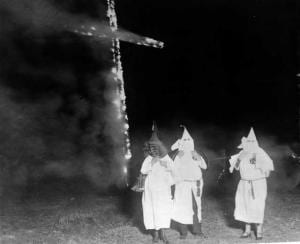 In more than a few of my essays over the six or seven years I have been writing them, I have taken up the question of anti-Judaism. Like some whack-a-mole carney game, the Jews have over many centuries been blamed for all manner of societal evils, from capitalism out of control, to socialism in its most terrible guises, to patently absurd ideas of ritual sacrifice, to international cabals against all God-fearing Christians, and on and on. The mere fact that Jews have been skewered as the ultimate source for both bad capitalism (the trope of the “money-grubbing Jew”) as well as the worst evils of socialism (see the constant Nazi attacks against Jews as supreme socialists, looking out only for ‘their own kind’) suggest clearly that those who make these charges have no basis in reality for them. The ridiculous notion that at the base of all the world’s woes one finds one Jew or another is the most disgusting and reprehensible claim that world bigots continually make. And yet, make it they still do in 2020, and in many countries.
In more than a few of my essays over the six or seven years I have been writing them, I have taken up the question of anti-Judaism. Like some whack-a-mole carney game, the Jews have over many centuries been blamed for all manner of societal evils, from capitalism out of control, to socialism in its most terrible guises, to patently absurd ideas of ritual sacrifice, to international cabals against all God-fearing Christians, and on and on. The mere fact that Jews have been skewered as the ultimate source for both bad capitalism (the trope of the “money-grubbing Jew”) as well as the worst evils of socialism (see the constant Nazi attacks against Jews as supreme socialists, looking out only for ‘their own kind’) suggest clearly that those who make these charges have no basis in reality for them. The ridiculous notion that at the base of all the world’s woes one finds one Jew or another is the most disgusting and reprehensible claim that world bigots continually make. And yet, make it they still do in 2020, and in many countries.
I have said over and again that the source of this seemingly immortal and appalling idea is to be found in the depths of Christian history. Those of us who profess Christian belief have much to answer for when the question of anti-Judaism, and its virulent cousin anti-Semitism, arises. One need not be only a student of Nazi-era Germany to discover evidence of this human virus; it may be seen in 21st century America all too readily. When gangs of alt-right mobs parade in order to protest the removal of Confederate statuary or to out-shout cries of “Black Lives Matter,” or to attempt to intimidate any who call for social change of one sort or another, the chant is often “The Jews will not replace us!” Listen again to the videos made at the infamous Charlottesville confrontation of 2017, the occasion where President Trump found “good people on both sides,” and you will hear clearly from the throats of those professing right-wing views that odious cry. These so-called super Christians, who in an earlier day enjoyed nothing more than a cross bonfire to express their hatred of Black people, always added the Jews to their panoply of miscreants who deserved removal and death. To burn a cross, that instrument of torture that claimed the life of the founder of the faith, is to announce that that cross should best be understood as a modern-day weapon to obliterate and consume any who view the world as a place where all may find hope and acceptance. Jews and Blacks, among all other non-whites, are plainly not welcome in such a world.
But again, where does all this nastiness come from? The answer, I fear, is the Bible itself, and those who claimed that Bible as the very source of that hatred. Peter’s lengthy and famous sermon at Pentecost, as given to us in Acts 2, is itself riddled with a cankered anti-Judaism. Every Pentecost, falling some Sunday in May, all Christian churches hail this sermon as the “birthday of the church.” We design elaborate celebrations consisting of loud music, majestic processions, and pointed sermons that proclaim the great gift of Peter’s oration that resulted in the baptism and conversion of 3,000 people on that one day. Drowned out in the celebrations is the dark statements about Jewish guilt in the death of Jesus that appear more than once in the course of Peter’s oration (Acts 2:23, 36). Along with the gift of the Holy Spirit and the miraculous speaking of multiple languages that day came the clear announcement that the Jews were to blame for Jesus’s torture and death.
In the accounts of the gospels, one finds nauseating assaults on the Jews, hallmarked by that odious statement in Matthew 27:25, as Pilate proclaims his innocence of what is about to happen, “Then the people as a whole answered, ‘His blood be on us and our children.’” In the most horrifying of realities, that blood has indeed fallen on far too many of those children, descended from those 1st century Jews. The Gospel of John is all too fond of naming Jesus’s enemies as “the Jews,” and though modern translations have tried many ways to soften the raw language, I fear the Jews remain in that Gospel the named enemy of Jesus. The apostle Paul in his Galatian letter from early in his ministry, rails against “the Judaizers,” that is those who reject the apostle’s message and try to turn the Galatian converts back to traditional Judaism, and urges in a rowdy bit of pique that they should “castrate themselves” (Gal.5:12) for their attempts to uphold what they believe. This is but one more place in the tradition that Jews are castigated as the foes of an emerging Christian community.
And as the Bible’s canon closed, and the church began its rapid spread throughout the Mediterranean basin, the earliest commentators of that Bible, the church’s first theologians often took turns assaulting the Jews in their midst, terming them “Christ killers,” and urging their removal from Christian society. This sort of language and action laid the groundwork for later ghettos for displaced Jews, and that led inexorably to “parts of towns” where Jews might be found, then on to Nazi concentration and extermination camps where Jews might be dealt with once and for all. The assault on Jews has frankly never stopped since Peter’s famous sermon in the 1st century. There can be no rational reason for any of this repugnant hatred of the Jews, but the mere fact of that certain truth has apparently had little effect on that constant hatred. Such anti-Judaism is surely the darkest stain on the fabric of Christian history.
Can we not rise above this absurd and irrational Jewish hatred? Is it inevitable when a society searches for scapegoats for its limitations, its shortcomings, as it regularly does, that it turn to the Jews to find the source of that limitation? There are no more than 15,000,000 Jews in the entire world, filled as it is with more than seven billion souls. Why do the Jews come in for such opprobrium, such undisguised revulsion? We Christians must always look first for our own Bible and history for the answer to that question, and we must search for ways to overcome this foul stain on the pages of that history.
(Images from Wikimedia Commons)











